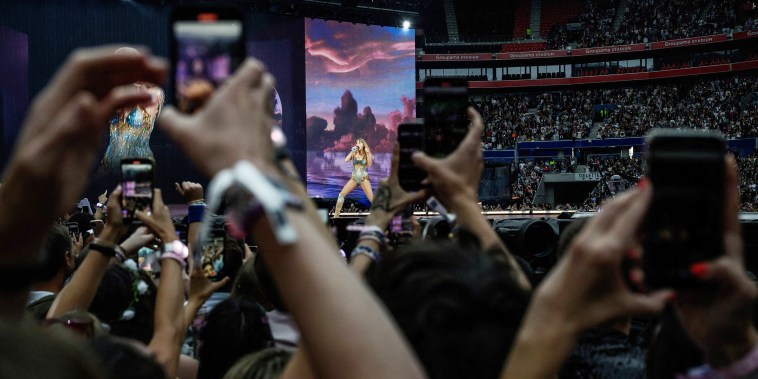The Funflation Effect: Why Americans are Shifting towards Travel and Entertainment
In today’s fast-paced world, Americans are increasingly prioritizing experiences over material possessions. This cultural shift has given rise to what economists are calling the funflation effect, where spending on travel and entertainment are outpacing traditional consumption patterns. Let’s delve deeper into the factors driving this trend and its implications for the economy and society at large.
Changing Consumer Preferences
One of the key reasons behind the funflation effect is the changing preferences of American consumers. Millennials, in particular, are leading this trend, valuing experiences that create lasting memories over buying material goods. This shift is driven by a desire for authenticity, adventure, and personal growth – values that are often more easily satisfied through travel and entertainment.
Social Media Influence
The rise of social media platforms has played a significant role in fueling the funflation effect. With the constant sharing of travel experiences and entertainment events on platforms like Instagram and Facebook, individuals are increasingly motivated to seek out similar experiences for themselves. The desire to capture and share memorable moments with friends and followers has become a driving force behind the prioritization of leisure activities.
Technological Advancements
Advancements in technology have also contributed to the funflation effect by making travel and entertainment more accessible and engaging than ever before. Online booking platforms and travel apps have simplified the planning process, while virtual reality and streaming services have enhanced the quality of entertainment experiences. These technological innovations have made it easier for consumers to indulge in leisure activities, further driving the shift towards experiential spending.
Economic Factors
Economic factors have also played a role in shaping the funflation effect. As the economy has improved in recent years, consumers have had more disposable income to allocate towards discretionary spending. Additionally, low interest rates have made borrowing cheaper, encouraging individuals to take on debt to finance travel and entertainment experiences that may have been out of reach in the past.
Impact on the Economy
The funflation effect has significant implications for the economy. While traditional retail sectors may face challenges as consumer preferences shift towards experiences, industries related to travel and entertainment are poised to benefit. Hotels, restaurants, airlines, event venues, and other experiential businesses stand to gain from the increased demand for leisure activities. This shift in consumer behavior is reshaping the economic landscape, highlighting the importance of adaptability and innovation for businesses to thrive in the changing market environment.
Social Implications
Beyond the economic impact, the funflation effect also has social implications. The prioritization of travel and entertainment experiences can foster a sense of community and connection among individuals. Shared experiences create opportunities for bonding and relationship-building, leading to a more socially connected society. Additionally, the focus on personal growth and self-discovery through experiences can contribute to individual well-being and mental health.
In conclusion, the funflation effect reflects a broader cultural shift towards experiential spending driven by changing consumer preferences, social media influence, technological advancements, and economic factors. While this trend poses challenges for some industries, it also presents opportunities for businesses in the travel and entertainment sectors. By understanding and adapting to this shift, companies can position themselves to thrive in an evolving market landscape while contributing to the well-being and connectedness of society as a whole.


























